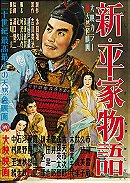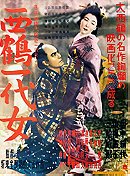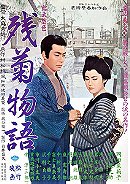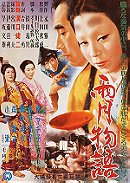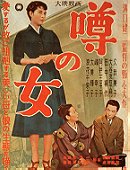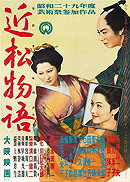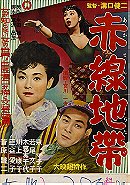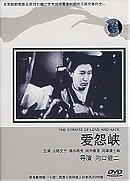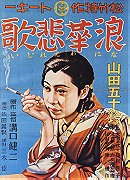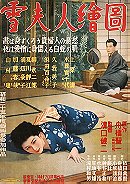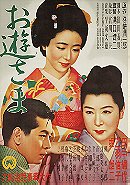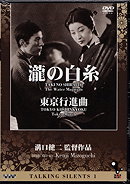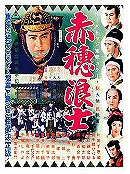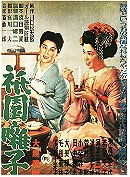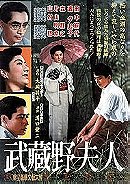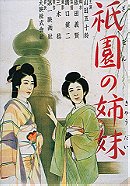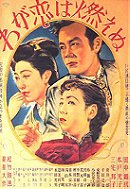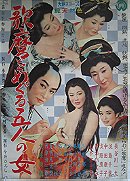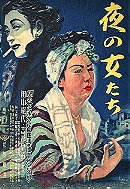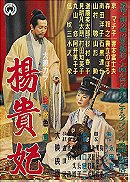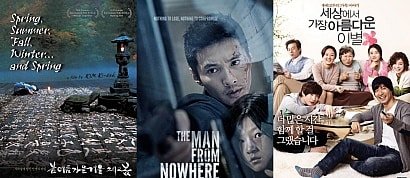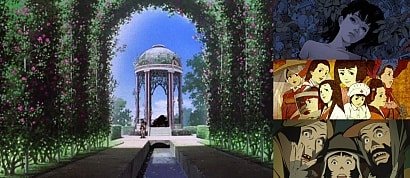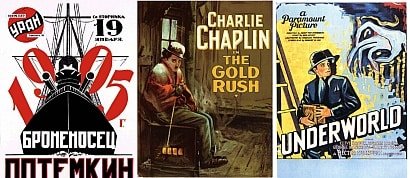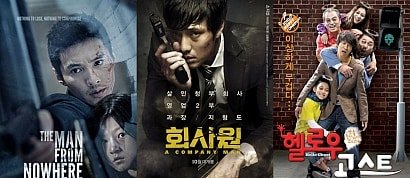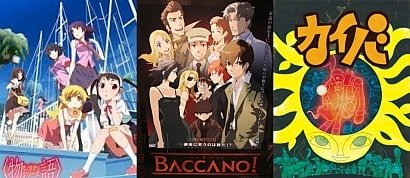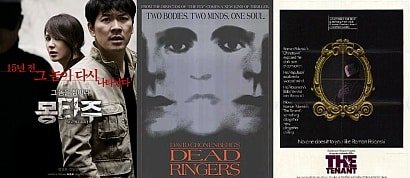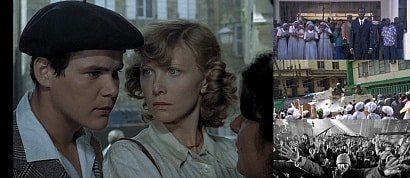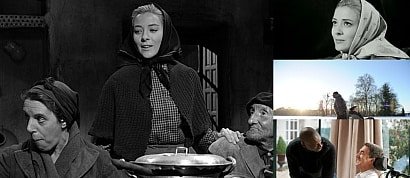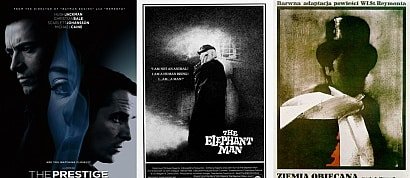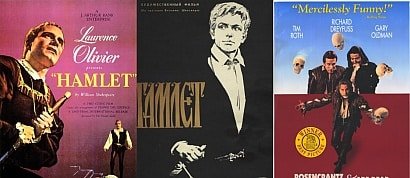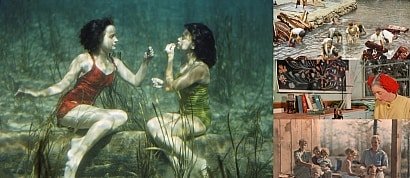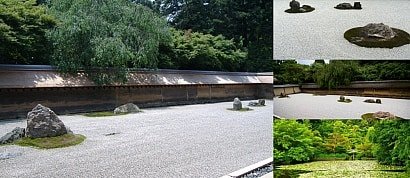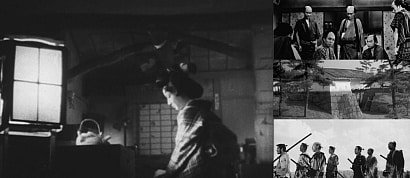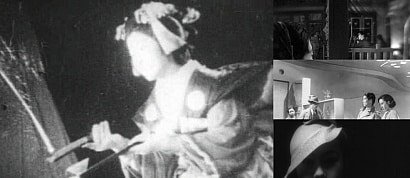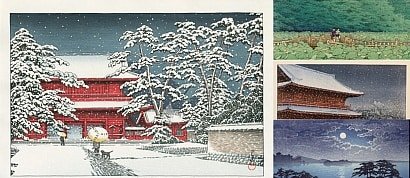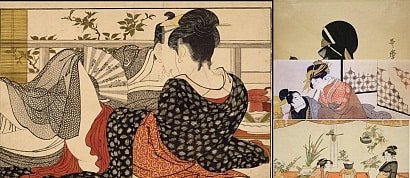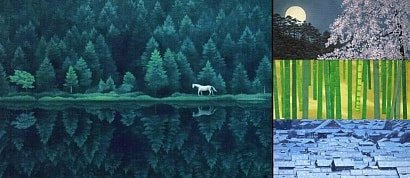Essential Mizoguchi
Sort by:
Showing 21 items
Decade:
Rating:
List Type:
My top 21 by Mizoguchi in preferential order.
AN INTRO TO MIZOGUCHI
Mizoguchi Kenji was born in Tokyo in 1898, the middle child in a family of modest means. The abrupt ending of the 1904-5 Russo-Japanese war, dashing his father's attempts to sell raincoats to the army, precipitated a desperate financial crisis which forced his older sister Suzu to be given up for adoption then sold to a geisha house. Though she was fortunately "rescued" and later married by a wealthy patron, the event, along with the death when he was 17 of the mother he idolised, had a huge impact on Mizoguchi's life and future career as a director- a principal theme of his films being the oppression and suffering of women.
Having left school at 13 for a pharmacy apprenticeship, Mizoguchi was then found work designing kimonos and began to study art and western painting, before in turn becoming a newspaper illustrator at Kobe. In 1922, after a period of unemployment and rather inconsiderate dependence on Suzu (despite his films' feminist credentials, he was often self-centred in his relationships with women, including his regular actress Tanaka Kinuyo), he was hired as an actor, then as assistant director, at the Nikkatsu company. The next year, he directed the first of over eighty films, the majority of which, from the 1920's and 30's, are now lost. In the mid 20s he was briefly suspended by the studio after being scandalously slashed with a razor by a prostitute girlfriend. Familiar with the milieu, prostitutes were regular (sympathetically depicted) protagonists in Mizoguchi's films.
Long established in Japan through pre-war masterpieces such as "Sisters of the Gion", "Osaka Elegy" (both 1936), Straits of Love and Hate (1937, notable for the scarcity of close-ups, which at the time he said he hated) and the dazzling spatial exploration "Story of the Late Chrysanthemums" (1939), Mizoguchi's films first found international acclaim in 1952. Following the huge unexpected success of Kurosawa's "Rashomon" at Venice the previous year, which acted as a spur to the driven Mizoguchi, "The Life of Oharu", a harrowing but typically beautiful film concerning a court lady's downfall to ageing prostitute, was awarded the festival's international prize, a feat matched by Silver Lions for his next two entries. From "Oharu" onwards, his career and enthusiasm now revitalised, Mizoguchi achieved in the space of just four years an unequalled succession of sublime masterpieces, including "Ugetsu Monogatari" (1953), "Sansho the Bailiff", "Chikamatsu Monogatari" (both 1954), "Yang Kwei Fei" and "Tales of the Taira Clan" (both 1955). The last two, with their shimmering jewel-like costumes, are remarkable ventures into colour.
By the time of his early death from leukaemia in 1956, Mizoguchi's films were widely revered, in particular by young French critics like Jacques Rivette and Jean-Luc Godard, for their superlative mise-en-scene; lovely painterly compositions, elegant long takes and serene, fluid camerawork (most notably that of Miyagawa Kazuo) projecting a political stance- albeit often within "jidai-geki" period dramas- on behalf of downtrodden women. Although it is true that many Mizoguchi women have noble unselfish qualities and are undone by patriarchal society, they are certainly not all shrinking violets, passive, idealised and accepting of their fate. "The Love of Sumako the Actress"(1947) and "My Love has been Burning" (1949) are centred on strong independent women, while in "Osaka Elegy" we have a memorable image of determined defiance, in "The Life of Oharu" Tanaka Kinuyo hisses like a cat, in "The Woman of Rumour (1954), the daughter of a brothel mistress puts fickle male opportunism firmly in its place and in "Street of Shame" (Mizoguchi's final film, 1956) the ever forthright Kyo Machiko delivers a withering blast at her hypocritical father. As a great tragedian, suicides are a common feature of Mizoguchi films: these occur for a variety of reasons and should not be viewed as essentially defeatist or a sign of Conservatism. As his regular screenwriter Yoda Yoshikata, who was tortured for his political beliefs in the 1930s. has pointed out, while self-centred for his own career, Mizoguchi was also consistently against social injustice.
A fan of Shinpa melodrama, Mizoguchi's films often reveal his interest in theatre. The melodramatic plots of many of his films are balanced by their extreme refinement; heightened emotions observed at a discreet distance. Indeed they often involve observers peeping. In Story of the Late Chrysanthemums, the theatrical and cinematic aspects are intriguingly mixed, the theatre scenes shot from a variety of angles and with faster editing than the rest of a film notable for its long takes.
Many fine Mizoguchi films remain relatively neglected. "The Water Magician" (1933) is a silent film whose charm rises above the seemingly contrived later court scenes involving a young judge and his beloved benefactress in the dock. The disdainfully imperious Samurai epic "The Loyal 47 Ronin" (1941) was an intended military propaganda piece which prefers to examine space, patience and codes of honour to violent action and excitement.. " Portrait of Madame Yuki" (1950)'s elliptical development with events often viewed by servants may be emotionally distancing but few films have matched its beguiling mysterious beauty. "Miss Oyu" (1951) is a neglected little gem, again both lovely and tragic, with an ending somewhat reminiscent of Murnau's silent masterpiece "Sunrise". "The Woman of Rumour" is a grower whose emerging qualities and honest strength warm the cockles and "Tales of the Taira Clan" is a gorgeously vivid and unusually upbeat historical drama. If "Ugetsu Monogatari", an engrossing admonition against vain male ambition and erotic temptation- replete with rapturous idyll at the mansion of eerie Lady Wakasa- is perhaps still his most renowned work, Mizoguchi's qualities and themes are fused at an exquisite, poignant peak in "Sansho the Bailiff".
Sansho the Bailiff's refined yet detailed narrative concerns the cruel misfortune befalling an exiled feudal governor's wife and children. Here, the director's ideal of self-sacrificing womanhood, as represented by his mother and sister, is clearly apparent in the characters of Anju and Tamaki. There are also alternative models of fatherhood: Mizo despised his father, and Sansho is a slave-master to be rebelled against. Within a contemplative frame of delicately nuanced lighting and lyrical, translucent silvery cinematography, water and ravishing landscapes are imbued with a sense of aching longing and overwhelming emotional resonance. In one scene, a few ripples are charged with fathomless depths of feeling. The immensely touching ending, its final crane and panning shots a model of unobtrusive technique, is rightly famed for conveying a universe beyond the confines of its story.
In "Sansho the Bailiff", the director's demanding (sometimes petulant and tyrannical) perfectionism- he would repeatedly return the scripts of the ever loyal Yoda with the words "no good" - reaps its richest rewards. Though Mizoguchi is still to receive due recognition in Britain and America, it was once again voted (along with Ugetsu Monogatari), among the top 60 films in Sight and Sound's latest poll of international critics. It is, alone, enough to mark him as one of the very greatest masters and justify his proclaimed status as "the Shakespeare" of cinema.
AN INTRO TO MIZOGUCHI
Mizoguchi Kenji was born in Tokyo in 1898, the middle child in a family of modest means. The abrupt ending of the 1904-5 Russo-Japanese war, dashing his father's attempts to sell raincoats to the army, precipitated a desperate financial crisis which forced his older sister Suzu to be given up for adoption then sold to a geisha house. Though she was fortunately "rescued" and later married by a wealthy patron, the event, along with the death when he was 17 of the mother he idolised, had a huge impact on Mizoguchi's life and future career as a director- a principal theme of his films being the oppression and suffering of women.
Having left school at 13 for a pharmacy apprenticeship, Mizoguchi was then found work designing kimonos and began to study art and western painting, before in turn becoming a newspaper illustrator at Kobe. In 1922, after a period of unemployment and rather inconsiderate dependence on Suzu (despite his films' feminist credentials, he was often self-centred in his relationships with women, including his regular actress Tanaka Kinuyo), he was hired as an actor, then as assistant director, at the Nikkatsu company. The next year, he directed the first of over eighty films, the majority of which, from the 1920's and 30's, are now lost. In the mid 20s he was briefly suspended by the studio after being scandalously slashed with a razor by a prostitute girlfriend. Familiar with the milieu, prostitutes were regular (sympathetically depicted) protagonists in Mizoguchi's films.
Long established in Japan through pre-war masterpieces such as "Sisters of the Gion", "Osaka Elegy" (both 1936), Straits of Love and Hate (1937, notable for the scarcity of close-ups, which at the time he said he hated) and the dazzling spatial exploration "Story of the Late Chrysanthemums" (1939), Mizoguchi's films first found international acclaim in 1952. Following the huge unexpected success of Kurosawa's "Rashomon" at Venice the previous year, which acted as a spur to the driven Mizoguchi, "The Life of Oharu", a harrowing but typically beautiful film concerning a court lady's downfall to ageing prostitute, was awarded the festival's international prize, a feat matched by Silver Lions for his next two entries. From "Oharu" onwards, his career and enthusiasm now revitalised, Mizoguchi achieved in the space of just four years an unequalled succession of sublime masterpieces, including "Ugetsu Monogatari" (1953), "Sansho the Bailiff", "Chikamatsu Monogatari" (both 1954), "Yang Kwei Fei" and "Tales of the Taira Clan" (both 1955). The last two, with their shimmering jewel-like costumes, are remarkable ventures into colour.
By the time of his early death from leukaemia in 1956, Mizoguchi's films were widely revered, in particular by young French critics like Jacques Rivette and Jean-Luc Godard, for their superlative mise-en-scene; lovely painterly compositions, elegant long takes and serene, fluid camerawork (most notably that of Miyagawa Kazuo) projecting a political stance- albeit often within "jidai-geki" period dramas- on behalf of downtrodden women. Although it is true that many Mizoguchi women have noble unselfish qualities and are undone by patriarchal society, they are certainly not all shrinking violets, passive, idealised and accepting of their fate. "The Love of Sumako the Actress"(1947) and "My Love has been Burning" (1949) are centred on strong independent women, while in "Osaka Elegy" we have a memorable image of determined defiance, in "The Life of Oharu" Tanaka Kinuyo hisses like a cat, in "The Woman of Rumour (1954), the daughter of a brothel mistress puts fickle male opportunism firmly in its place and in "Street of Shame" (Mizoguchi's final film, 1956) the ever forthright Kyo Machiko delivers a withering blast at her hypocritical father. As a great tragedian, suicides are a common feature of Mizoguchi films: these occur for a variety of reasons and should not be viewed as essentially defeatist or a sign of Conservatism. As his regular screenwriter Yoda Yoshikata, who was tortured for his political beliefs in the 1930s. has pointed out, while self-centred for his own career, Mizoguchi was also consistently against social injustice.
A fan of Shinpa melodrama, Mizoguchi's films often reveal his interest in theatre. The melodramatic plots of many of his films are balanced by their extreme refinement; heightened emotions observed at a discreet distance. Indeed they often involve observers peeping. In Story of the Late Chrysanthemums, the theatrical and cinematic aspects are intriguingly mixed, the theatre scenes shot from a variety of angles and with faster editing than the rest of a film notable for its long takes.
Many fine Mizoguchi films remain relatively neglected. "The Water Magician" (1933) is a silent film whose charm rises above the seemingly contrived later court scenes involving a young judge and his beloved benefactress in the dock. The disdainfully imperious Samurai epic "The Loyal 47 Ronin" (1941) was an intended military propaganda piece which prefers to examine space, patience and codes of honour to violent action and excitement.. " Portrait of Madame Yuki" (1950)'s elliptical development with events often viewed by servants may be emotionally distancing but few films have matched its beguiling mysterious beauty. "Miss Oyu" (1951) is a neglected little gem, again both lovely and tragic, with an ending somewhat reminiscent of Murnau's silent masterpiece "Sunrise". "The Woman of Rumour" is a grower whose emerging qualities and honest strength warm the cockles and "Tales of the Taira Clan" is a gorgeously vivid and unusually upbeat historical drama. If "Ugetsu Monogatari", an engrossing admonition against vain male ambition and erotic temptation- replete with rapturous idyll at the mansion of eerie Lady Wakasa- is perhaps still his most renowned work, Mizoguchi's qualities and themes are fused at an exquisite, poignant peak in "Sansho the Bailiff".
Sansho the Bailiff's refined yet detailed narrative concerns the cruel misfortune befalling an exiled feudal governor's wife and children. Here, the director's ideal of self-sacrificing womanhood, as represented by his mother and sister, is clearly apparent in the characters of Anju and Tamaki. There are also alternative models of fatherhood: Mizo despised his father, and Sansho is a slave-master to be rebelled against. Within a contemplative frame of delicately nuanced lighting and lyrical, translucent silvery cinematography, water and ravishing landscapes are imbued with a sense of aching longing and overwhelming emotional resonance. In one scene, a few ripples are charged with fathomless depths of feeling. The immensely touching ending, its final crane and panning shots a model of unobtrusive technique, is rightly famed for conveying a universe beyond the confines of its story.
In "Sansho the Bailiff", the director's demanding (sometimes petulant and tyrannical) perfectionism- he would repeatedly return the scripts of the ever loyal Yoda with the words "no good" - reaps its richest rewards. Though Mizoguchi is still to receive due recognition in Britain and America, it was once again voted (along with Ugetsu Monogatari), among the top 60 films in Sight and Sound's latest poll of international critics. It is, alone, enough to mark him as one of the very greatest masters and justify his proclaimed status as "the Shakespeare" of cinema.
Added to
13 votes
My Own Favourite Lists
(118 lists)list by Kenji
Published 10 years, 8 months ago  1 comment
1 comment
 1 comment
1 commentPeople who voted for this also voted for
Delicious Food Photos That Will Make Your Appetite
Korean Movies
Best Albums of 1994
Satoshi Kon
LUIS BUÑUEL favorite movies
Korean movie lists
Top 10 Anime OPs/EDs
watchlist
Sajal Ali In Stunning Bridal Makeup
War and Politics
Great Virtues: Generosity
Period Dramas-The Victorian Era 1837-1901
William Shakespeare in cinema
PHOTOS | J. Baylor Roberts
My Best Food
More lists from Kenji
Great Gardens: Ryoan-ji, Kyoto, Japan
Notable Samurai Films
Directors admiring Mizoguchi
Mizoguchi Film Images
Japanese Artists: Kawase
Japanese Artists: Utamaro
Japanese Artists: Higashiyama
 Login
Login
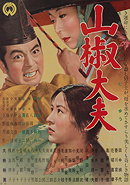
 316
316
 8.5
8.5
 8.4
8.4

